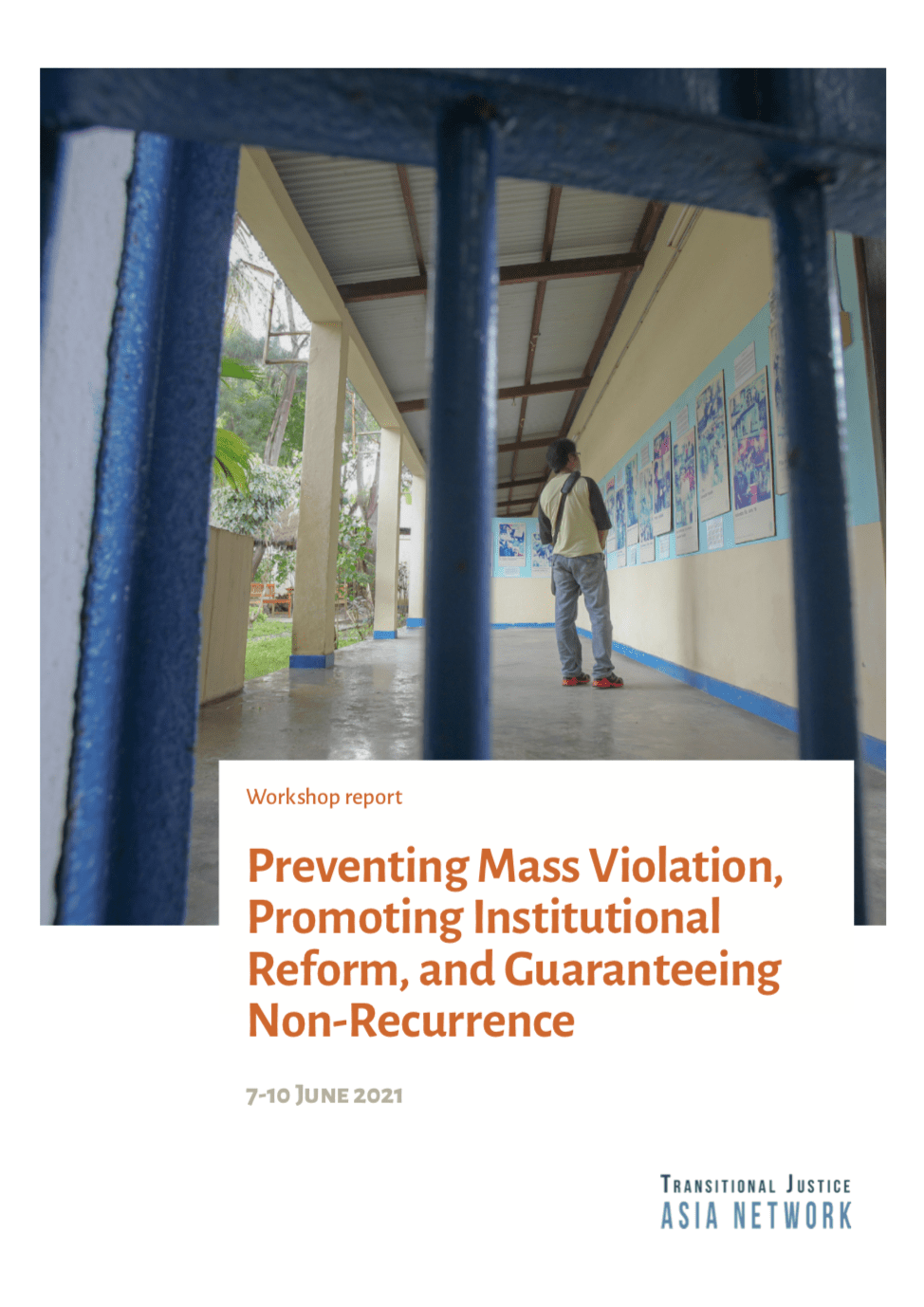For the last two decades, most Asian countries experienced a political situation from militarism and authoritarianism into democratic era. The transition process affected the massive reform on institutional reform, including military, police and judiciary reform. However, the current situation in both Global and Asian contexts shows the increasing militarism and authoritarianism. Several countries in Asia, like Myanmar and Thailand, provide examples of military domination, in not only the security actors but in other sectors like business, technology, education, and health.
This is affected to the Increasing numbers of violations including arbitrary detention, torture, custodial deaths and extrajudicial killings, by police, army, and intelligence agencies, without adequate legal process and with maximum sanction. Furthermore, the domination of the security sector in government resulting in shrinking public space, for example, by restricting freedom of expression and assembly (including media and other online platform), and allowing torture and arbitrary arrest.
On the other hand, most countries facing similar problems such as lack of regulations that hold the security sector accountable for international crimes, as well as prevention from mass violations, crimes against humanity and genocide. Thus, it is important to have legal protection for civilians from the security sector and state authorities. As a result, the civil society has a main role in advocating civilians as well as to ensure that four pillars of transitional justice including preventing mass violations, promoting institutional reform, and guaranteeing non recurrence will be achieved.
Asia Justice and Rights (AJAR) together with Transitional Justice Asia Network (TJAN) – KontraS Aceh (Indonesia), ND-Burma (Myanmar), Suriya Women’s Development Centre (Sri Lanka), Alternative Law Groups (Philippines), and the Cross-Cultural Foundation (Thailand). TJAN’s membership has expanded to include associates: Assosiasaun Chega Ba Ita/ACbit (Timor-Leste), Liberation War Museum (Bangladesh), Advocacy Forum (Nepal) and May 18 Foundation (South Korea) – convened a four-day online workshop on “Preventing Mass Violation, Promoting Institutional Reform, and Guaranteeing Non-Recurrence” on 7-10 June 2021.
The workshop aims to increase understanding of the innovative responses to entrenched impunity in Asia and build the capacity of those working to advance human rights in the region. The workshop includes presentations by international and regional experts, knowledge-sharing discussions, and practical group activities as well as opportunities for participants to informally discuss their experiences and build community.
